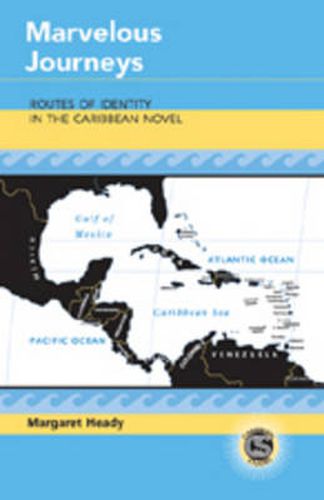Readings Newsletter
Become a Readings Member to make your shopping experience even easier.
Sign in or sign up for free!
You’re not far away from qualifying for FREE standard shipping within Australia
You’ve qualified for FREE standard shipping within Australia
The cart is loading…






Marvelous Journeys explores the transition from a modernist to a postmodernist consciousness in twentieth-century Caribbean writings on identity that is reflected through a corresponding evolution in the use of the marvelous as a literary tool. For the three novelists who are the focus of this study - Jacques-Stephen Alexis, Alejo Carpentier, and Simone Schwarz-Bart - the discourse of the marvelous offers a uniquely Caribbean vehicle for capturing an elusive Caribbean essence as well as for coming to terms with the seemingly contradictory demands of a Parisian intellectual formation and an authentic Caribbean sensibility.
This book engages with recent debates in criticism and theory and will appeal to a broad spectrum of readers interested in Francophone literature, Caribbean studies, and literary and postcolonial theory. It contributes to the burgeoning field of Caribbean literary studies by adopting a transcultural approach to a neglected but increasingly important area of study: the circulation of ideas and influences among the Hispanic and Francophone Caribbean islands and the African and European continents.
$9.00 standard shipping within Australia
FREE standard shipping within Australia for orders over $100.00
Express & International shipping calculated at checkout
Marvelous Journeys explores the transition from a modernist to a postmodernist consciousness in twentieth-century Caribbean writings on identity that is reflected through a corresponding evolution in the use of the marvelous as a literary tool. For the three novelists who are the focus of this study - Jacques-Stephen Alexis, Alejo Carpentier, and Simone Schwarz-Bart - the discourse of the marvelous offers a uniquely Caribbean vehicle for capturing an elusive Caribbean essence as well as for coming to terms with the seemingly contradictory demands of a Parisian intellectual formation and an authentic Caribbean sensibility.
This book engages with recent debates in criticism and theory and will appeal to a broad spectrum of readers interested in Francophone literature, Caribbean studies, and literary and postcolonial theory. It contributes to the burgeoning field of Caribbean literary studies by adopting a transcultural approach to a neglected but increasingly important area of study: the circulation of ideas and influences among the Hispanic and Francophone Caribbean islands and the African and European continents.